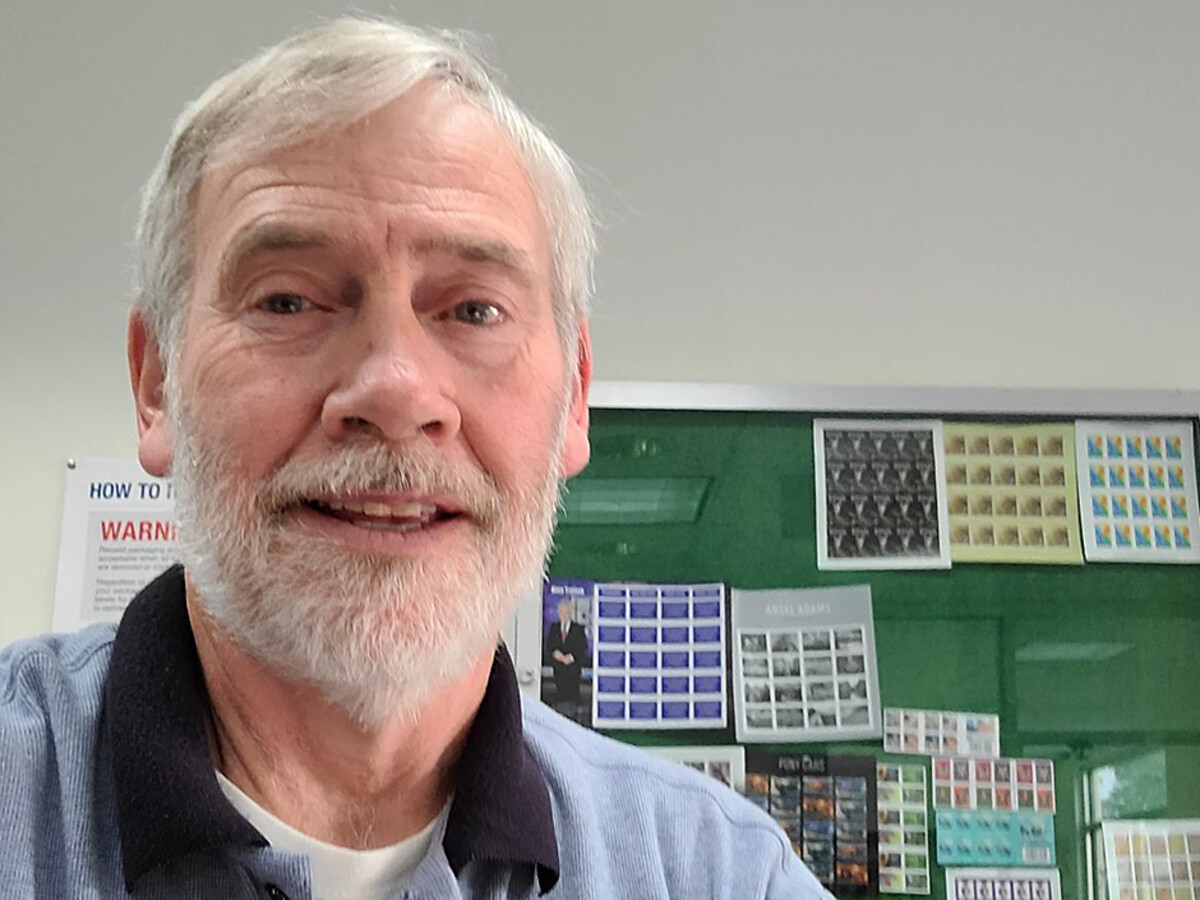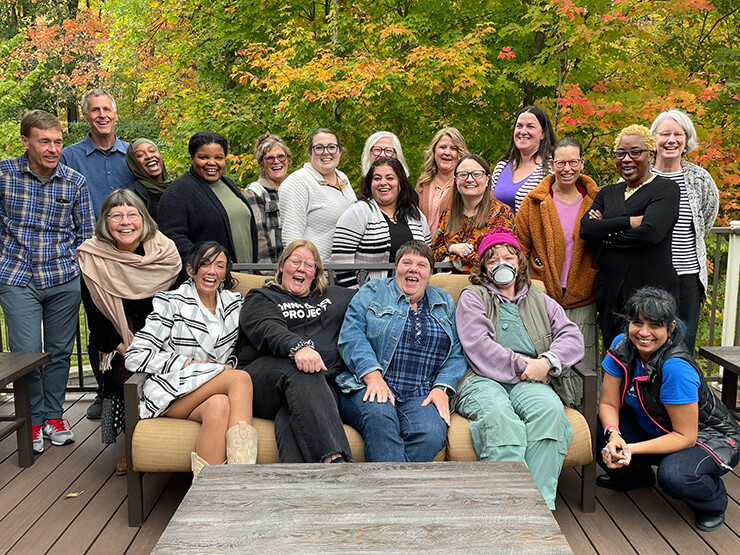Image


Civic leaders hope outreach and boot camps will help to cultivate a new generation of office holders and engage more people in local politics. Original story by Ava Kian
Avon Mayor Jeffrey Manthe doesn’t feel fired up about running in another election. But here he is, doing it one more time, uncontested.
“I’m actually hoping that if somebody else had signed on that, and I said, ‘OK, this, you know, this person could be a good candidate,’ I would probably step aside. I mean, I’ve done this … and I don’t need this for my ego or anything else like that,” he said. “I just continue to be interested in helping the community, because I love the community, and I love the people in the community, so that’s why I am encouraged to continue to do this.”
In 2010, Manthe got involved in local politics when the residents in his neighborhood association chose him as the group’s president. “Then they said, ‘You do a really good job of this. We’re having trouble getting people to sign on to be on the City Council. So we need you to be signed on to the City Council,’” he recalled.
Two years later, he ran for the City Council, won and served a four-year term. When the previous mayor announced his retirement, Manthe thought he’d give that a go, too, and ran in 2016, only to lose. He ran again in 2018 and won.
Manthe is seeking reelection to one more term in November, though he wishes there were more people running and interested in local elected positions in Avon, a town of 1,700 about a 20-minute drive from St. Cloud.
“It really is difficult to get people activated in a number of levels of government,” he said.
He’s not alone in that. Many communities in the state are facing a similar dearth of candidates. Here in Stearns County, 12 other cities or townships besides Avon have uncontested mayoral or township supervisor races this year, according to candidate filings.
There are many theories about the lack of engagement: busy schedules, long driving distances in rural areas, dual-income homes that leave couples exhausted and, of course, the divisiveness of modern politics. Whatever the reasons, local leaders worry that their communities will suffer from the lack of healthy political competition.
“You see so many races in so many different areas where people are running unopposed,” Manthe said. “I do think it’s good to have more voices and more thoughts and ideas.”
Many rural areas of Minnesota are experiencing what Ben Winchester, a rural sociologist for the University of Minnesota Extension, calls “leadership distress.”
His research from 2022 shows a disparity between urban and rural areas when it comes to the need for leadership, finding that the most urban counties require 1 in 950 residents over the age of 18 to serve as a governmental leader, while in most rural counties, the demand is higher with 1 in just 37 residents needing to be in governmental leadership positions.
 Group of Run4Rural trainers and participants from October of 2023 in Dent, Minnesota. Credit: Courtesy of West Central Initiative
Group of Run4Rural trainers and participants from October of 2023 in Dent, Minnesota. Credit: Courtesy of West Central InitiativeCeleste Koppe, a rural initiatives strategist for the foundation, said there’s a demand for the training program from city councilors who are looking for people to replace them in the coming years.
“We look at how to remove barriers to leadership,” Koppe said. “The whole thing is looking at this leadership crisis, right? We have (the) same number of local government units with way fewer people in rural (areas).”
One of the barriers the training addresses is a lack of education about organizing a campaign and collecting funds.
Manthe thinks smaller towns and cities are struggling to find leaders because of the increasing demands of life and an aging population. “People are just really busy,” he said. “Both spouses are working full-time. And then you get people that are at retirement age and a lot of them are just tired … they have served.”
Winchester said that in areas with more demand for leadership, leaders often wear multiple hats as they are involved with multiple organizations.
“There are impacts in small towns when you have to make decisions for maybe the better of your community, and it hits certain people,” he said. “That might hurt your business, that may hurt groups that you’re a part of. There’s a direct relationship between decisions and people and relationships in communities of small towns.”
 St. Cloud Mayor Dave Kleis
St. Cloud Mayor Dave KleisAnother challenge is polarization, which longtime St. Cloud Mayor Dave Kleis said can be countered through personal relationships within a community with mutual respect and some level of understanding. More recently, he said that polarization has trickled down into local politics.
“I served in the Legislature for 10 years, and even though there was a political divide beyond the debate on the floor of the Senate, we still got along pretty well. … You could have extremely different views on an issue or a policy, but you build relationships so that you can have those disagreements, but do it in a respectful way and in a civil way,” Kleis said.
“Without that — you see at the federal level, you see at the state level, and you’re starting to see a lot of that at the local level — without those relationships, you create even more tension and division,” he added. “That division — it really turns people off to wanting to be involved.”
People in these positions aren’t necessarily paid the same as they would be for a regular job, and it can be a stressful position, especially in a smaller city where everything feels more personal, said Margaret Evens, who was the mayor of Avon from 2002 to 2006.
“It’s a tough role,” she said. “You’ll do it a couple of years, and you’re done. That’s politics in a small city. No matter how good a mayor you are.”
So far, the Run4Rural project has trained over 72 people, and some of them have gone on into leadership roles, like becoming township supervisors, Koppe said.
Koppe, herself, ran for the Detroit Lakes City Council and from that experience realized how the value of civic engagement is something that must be taught early on, many times demonstrated by parents and nearby communities.
Some places, like Lismore, a town of 200 people in the southwest corner of the state, have no candidates for mayor on the November ballot. The current mayor, Wayne Bents, is leaving the state to live closer to his children and grandchildren, so he did not file for re-election.
The city clerk said that when that happens, the position would be offered to anyone whose name was written in on the ballot and that if they don’t want it, the position could go to a City Council member.
In regards to this election, Bents said: “There’s a possibility somebody’s gonna step up and go on the ballot. … Something’s got to happen, right?” he said.
Manthe thinks having people run for these offices helps to ensure accountability on the city level.
“There are times when things happen within small communities, and there can be issues of fraud, or there can be issues of staffing,” he said. “And that can get bad before anybody notices. I do think there’s an element of oversight that is important even in smaller communities.”
In Avon, city councilors and the mayor also serve as support to the city staff.
“The staff can sometimes feel like they’re on an island,” he said. One of the roles, I think, of the council is to help support the staff, people that sometimes work in a bit of an unappreciated realm.”
Manthe is not just the mayor. That job only pays a couple hundred dollars a month, “which doesn’t support much of a career,” he said. He’s also the clerk at the post office and a pastor at SonRise Lutheran Church, putting in around 60 hours of work a week between all of those jobs.
He said he’s been able to engage with the community mainly through his job at the post office. That, in itself, has been a valuable form of civic engagement.
“It’s interesting how my life kind of intertwines. People come into the post office. They see me there. We talk about things, what’s going on in town, or they ask me questions, or even sometimes they want to pray with me,” he said. “(The post office) is kind of a gathering point, especially in a smaller town, where it’s sort of our central shipping and people come to pick up their mail and they run to their P.O. boxes and they’re mailing. … That level of connection is kind of special.”
While having people involved in local government is important, it’s not the only form of civic engagement that happens in a community, Manthe said.
“In Avon and in a lot of communities, there are people that are very active in doing a number of things,” he said, referencing Lions clubs, churches and other groups like Over the Hills of Avon, which offers community building and activities for people 55 and older.
 Board members of Over the Hills of Avon, a community-based group for seniors in the area, meet at Avon City Hall on September 9. Credit: MinnPost photo by Ava Kian
Board members of Over the Hills of Avon, a community-based group for seniors in the area, meet at Avon City Hall on September 9. Credit: MinnPost photo by Ava KianWinchester found that in the most urban counties, just 3% of overall leadership demands are derived from governmental sources while in the most rural counties, 28% of overall leadership demands are governmental. He also noted there’s been a growth in nonprofits in rural areas, which could be key to getting more leaders in rural communities.
“Nonprofits get grown and born based upon people’s interests,” he said. “We have people interested in bringing disabled veterans fishing, and there’s a fishing Minnesota group that gets created. These nonprofit groups are reflections of personal and community interest and those interests change over time.”
He thinks encouraging collaboration between nonprofit leaders and local governments could lessen the leadership distress some of these communities face. Part of Manthe’s goal in his next term is to help grow more leaders so there’s a pathway for people to get involved in local leadership and spur more healthy competition in local races.

“I think one of my jobs now, in the next two years, is to help cultivate more extension of the gifts people already have, and bring them into the role of city leadership, as well,” Manthe said.
Editor’s note: This article is part of U.S. Democracy Day, a nationwide collaborative on Sept. 15, the International Day of Democracy, in which news organizations cover how democracy works and the threats it faces. To learn more, visit usdemocracyday.org.

Ava Kian is MinnPost’s Greater Minnesota reporter. Follow her on Twitter @kian_ava or email her at akian@minnpost.com.